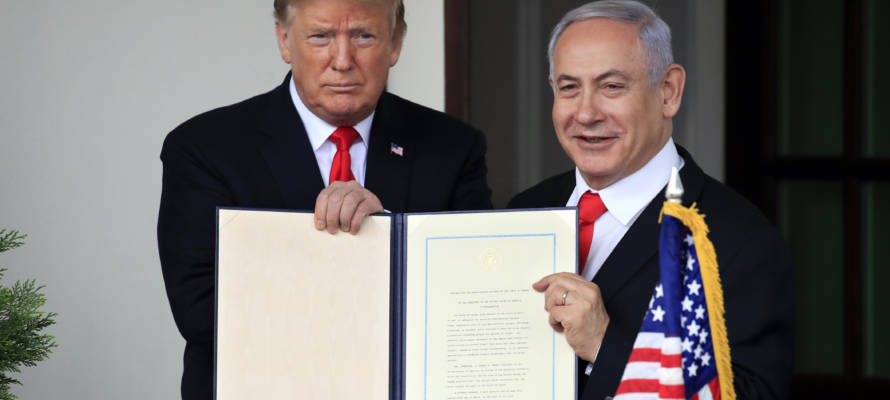“President Trump pledged to recognize Israel’s sovereignty over the Jewish communities [in Judea and Samaria] and in the Jordan Valley … I’m confident that that pledge will be honored,” said the Israeli prime minister.
By Benjamin Kerstein, The Algemeiner
Israeli Prime Minister Benjamin Netanyahu said on Sunday that the Trump administration will support the annexation of large parts of Judea and Samaria, and pledged that a decision on doing so would come “a couple of months from now.”
Unilateral annexation was proposed after the publication of the Trump peace plan earlier this year, and was a major sticking point in recent negotiations on forming an Israeli unity government.
Under the terms of the coalition deal, Netanyahu can propose a law annexing parts of Judea and Samaria in July, contingent on the approval of the White House.
Speaking to an online event celebrating 100 years since the San Remo conference, which anchored the idea of a Jewish state in international law, Netanyahu told the evangelical Christian group the European Coalition for Israel that he is “confident” annexation is inevitable.
“My friends, for decades I’ve been fighting those who’ve sought to deny the millennial connection of the Jewish people to our homeland,” the prime minister said in a video message. “I’m proud to say that the decades-long struggle has borne fruit.”
“Three months ago, the Trump peace plan recognized Israel’s rights in all of Judea and Samaria, and President Trump pledged to recognize Israel’s sovereignty over the Jewish communities there and in the Jordan Valley,” he said. “A couple of months from now, I’m confident that that pledge will be honored.”
“We will be able to celebrate another historic moment in the history of Zionism,” he added. “A century after San Remo, the promise of Zionism is being realized.”
Many in the international community oppose annexation and the EU’s foreign policy chief recently stated that it would be considered a violation of international law.
